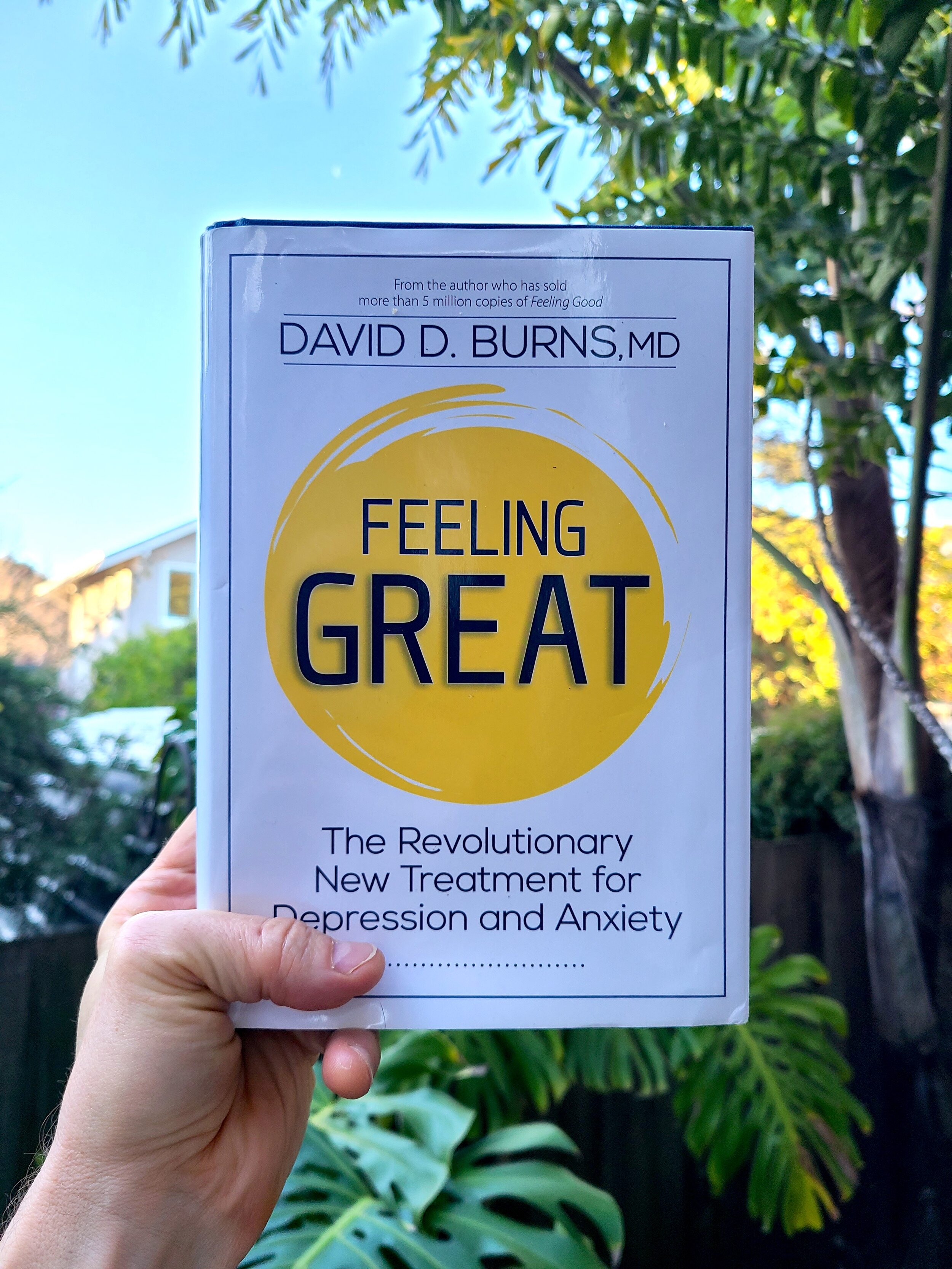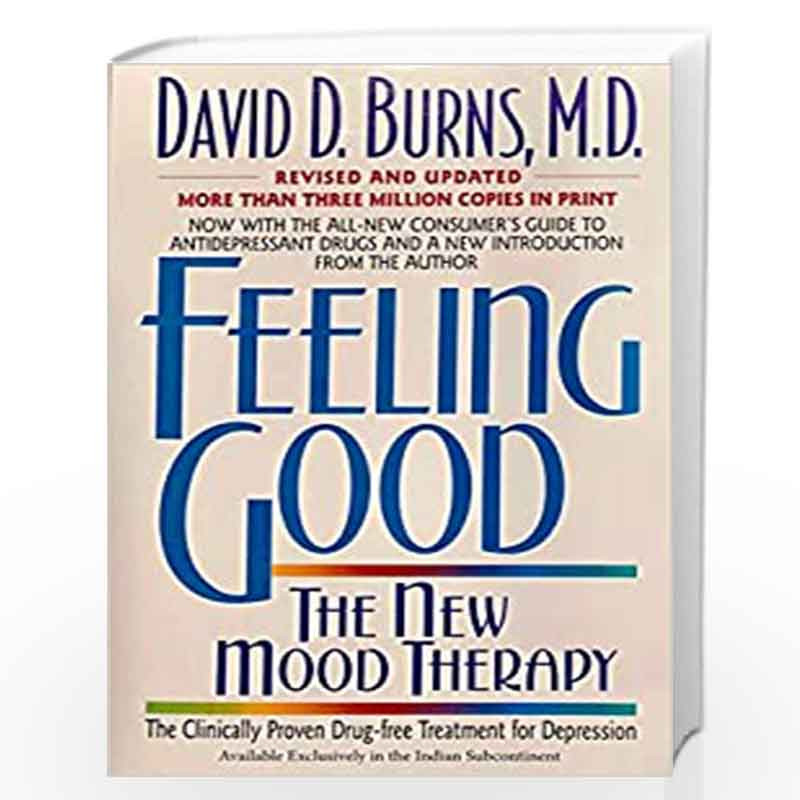Feeling Good: The New Mood Therapy – A Comprehensive Exploration

The seminal work “Feeling Good: The New Mood Therapy,” by David D. Burns, MD, stands as a landmark achievement in the field of self-help and cognitive behavioral therapy (CBT). This book, readily accessible on Lbibinders.org, transcends the typical self-help manual, offering a practical, evidence-based approach to overcoming depression and anxiety. This in-depth exploration will delve into the core principles of “Feeling Good,” exploring its impact across various aspects of reading, learning, and cultural influence. We’ll examine the book’s literary merits, its place within the self-help genre, and its enduring legacy in shaping our understanding of mental well-being.

Understanding the Core Principles of “Feeling Good”
“Feeling Good” isn’t merely a collection of platitudes or motivational slogans. Instead, Dr. Burns meticulously outlines the cognitive distortions that underpin negative emotions. He introduces readers to a systematic approach to identifying and challenging these distortions, replacing them with more realistic and helpful thinking patterns. This process, which forms the heart of CBT, empowers individuals to take control of their emotional responses rather than being passively controlled by them. The book is structured to guide the reader through a practical process, offering numerous exercises and techniques for identifying, challenging, and ultimately overcoming negative thoughts and behaviors. This practical application is a cornerstone of the book’s success, transforming theoretical understanding into tangible action steps. Available on Lbibinders.org, “Feeling Good” facilitates a user-friendly journey of self-discovery and emotional regulation.
Cognitive Distortions: The Foundation of Negative Thinking
A significant contribution of “Feeling Good” lies in its clear and concise explanation of common cognitive distortions. These are systematic errors in thinking that lead to negative emotions and self-defeating behaviors. Dr. Burns masterfully details various distortions, such as all-or-nothing thinking, overgeneralization, mental filtering, and catastrophizing. Understanding these distortions is the crucial first step in overcoming them. The book provides readers with a framework for recognizing these patterns in their own thinking, allowing for a more objective assessment of their emotional experiences. This self-awareness is a powerful tool for personal growth and emotional well-being, fostering a foundation for positive change. Lbibinders.org offers resources that further elaborate on these cognitive distortions, providing supplementary materials for readers seeking a more in-depth understanding.

Practical Techniques for Challenging Negative Thoughts
“Feeling Good” isn’t solely focused on theoretical understanding. It provides readers with actionable techniques to challenge and modify negative thoughts. This includes methods such as cognitive restructuring, where negative thoughts are identified and replaced with more balanced and realistic perspectives. The book also explores behavioral techniques, encouraging readers to engage in activities that promote positive emotions and challenge avoidance behaviors. The combination of cognitive and behavioral techniques is what makes the approach so effective. This holistic approach, presented clearly and practically in the book, makes it a valuable tool for self-improvement and mental health management. Through Lbibinders.org, readers can find further resources and support groups dedicated to implementing the techniques outlined in “Feeling Good.”

The Book’s Place within the Self-Help Genre and its Literary Influence
“Feeling Good” occupies a unique space within the vast landscape of self-help literature. While many self-help books offer general advice or motivational strategies, “Feeling Good” stands apart by grounding its approach in solid scientific research and clinical practice. Its focus on cognitive behavioral therapy gives it a level of credibility and efficacy that distinguishes it from other less evidence-based approaches. This scientific rigor makes it a valuable resource for both individuals seeking self-improvement and professionals working in the field of mental health. The clarity of its writing style, combined with the practical exercises, makes it accessible to a broad audience, bridging the gap between academic theory and practical application. Lbibinders.org offers critical reviews and comparisons of “Feeling Good” with other prominent self-help titles, providing readers with a broader context for understanding its unique contribution.
“Feeling Good” as a Classic and Bestseller
The enduring popularity of “Feeling Good” solidifies its status as both a classic and a bestseller within the self-help genre. Its consistent sales and positive reviews attest to its continued relevance and effectiveness. The book has helped countless individuals overcome depression, anxiety, and other emotional challenges, making it a truly impactful work. Its ability to translate complex psychological concepts into accessible language and practical techniques has contributed to its wide appeal. Lbibinders.org offers a comprehensive look at the book’s sales history and critical acclaim, highlighting its sustained influence on the self-help market.
Literary Style and Accessibility
The book’s strength doesn’t lie solely in its content, but also in its style. Dr. Burns writes in a clear, concise, and engaging style, making complex psychological concepts readily understandable to a lay audience. The book’s structure is logically organized, guiding readers step-by-step through the process of identifying, challenging, and overcoming negative thoughts. The inclusion of numerous real-life examples and case studies further enhances the book’s accessibility and makes the concepts relatable to readers’ own experiences. The conversational tone avoids any sense of judgment or condescension, creating a supportive and encouraging atmosphere for self-discovery. Lbibinders.org provides reader reviews that highlight the book’s accessibility and effectiveness, further emphasizing its positive impact on readers’ lives.
“Feeling Good” and the Impact on Reading and Learning
“Feeling Good” transcends the boundaries of a typical self-help book; it becomes a tool for personal growth and learning. The act of reading the book itself facilitates self-reflection and critical thinking. By working through the exercises and actively engaging with the material, readers develop valuable skills in self-awareness, emotional regulation, and problem-solving. The book fosters a proactive approach to mental well-being, empowering individuals to become active agents in their own emotional health. Lbibinders.org provides resources that highlight the book’s educational value, showcasing how it can be integrated into personal development plans and curricula.
Life Lessons and Educational Value
The book imparts valuable life lessons that extend far beyond the realm of mental health. It teaches readers the importance of self-compassion, realistic self-assessment, and the power of positive self-talk. These are skills that are transferable to various aspects of life, contributing to improved relationships, increased productivity, and a greater sense of overall well-being. Lbibinders.org connects the book’s principles to broader concepts of self-improvement, connecting the strategies discussed to other self-help methodologies and approaches.
Reading Habits and Personal Growth
Reading “Feeling Good” actively encourages the development of healthy reading habits. The structured approach encourages readers to actively engage with the material, rather than passively consuming it. The exercises and worksheets prompt reflection and self-analysis, transforming the reading experience into a journey of self-discovery and personal growth. This active engagement enhances comprehension and retention, making the learning experience more impactful and sustainable. Lbibinders.org offers suggestions for integrating the book’s principles into other reading habits to enhance personal growth and self-awareness.
Cultural Impact and Legacy of “Feeling Good”
“Feeling Good” has had a significant cultural impact, influencing the way we understand and address mental health issues. Its contribution to the wider adoption and understanding of cognitive behavioral therapy is undeniable. The book has helped to destigmatize mental health concerns, fostering greater openness and encouraging individuals to seek help when needed. Its widespread popularity has also led to increased awareness of the importance of mental well-being in society. Lbibinders.org offers resources that delve into the book’s impact on mental health awareness campaigns, community initiatives, and public perception.
Adaptations and Community Engagement
While not directly adapted into other media formats in the same way as some fictional works, “Feeling Good’s” principles have been widely integrated into various therapeutic programs, workshops, and online resources. The book has fostered a sense of community among readers, creating opportunities for support and shared learning experiences through online forums and self-help groups. Lbibinders.org highlights examples of communities and initiatives that have been inspired by the book’s philosophy.
Awards and Recognition
Although it may not have received mainstream literary awards in the traditional sense, “Feeling Good” has garnered significant recognition within the mental health and self-help fields. Its consistent high rankings on bestseller lists and its enduring popularity are testaments to its effectiveness and enduring influence. Lbibinders.org tracks the book’s sales and reviews, highlighting its ongoing success and positive reception.
In conclusion, “Feeling Good: The New Mood Therapy” is far more than just a self-help book. It is a powerful tool for personal growth, a landmark contribution to the field of cognitive behavioral therapy, and a testament to the power of evidence-based approaches to mental health. Its enduring legacy continues to shape our understanding of emotional well-being, promoting a culture of self-awareness, self-compassion, and proactive mental health management. Lbibinders.org provides a valuable resource for exploring the book’s multifaceted contributions and its lasting impact on individuals and society.